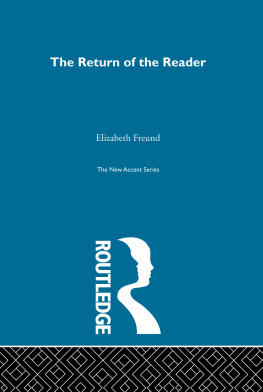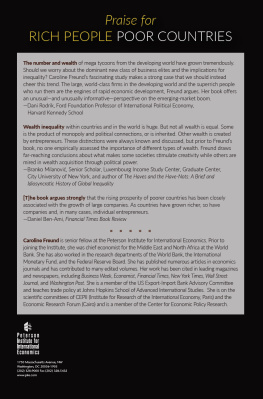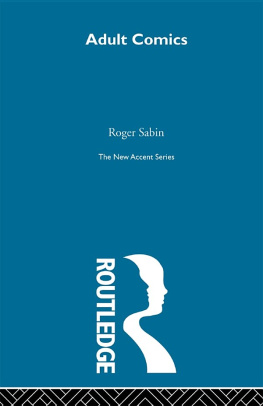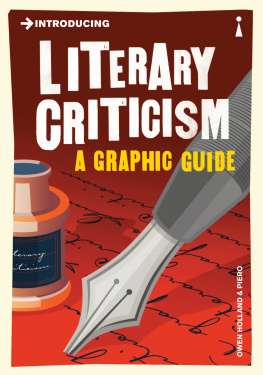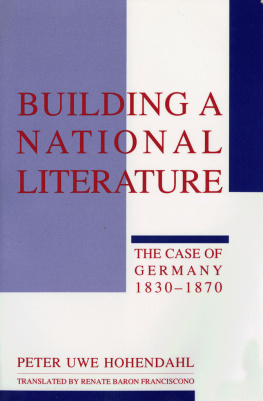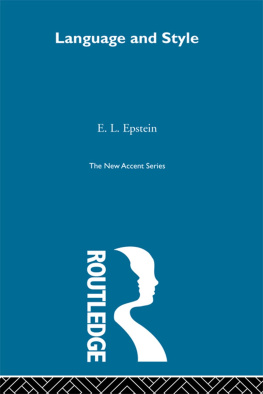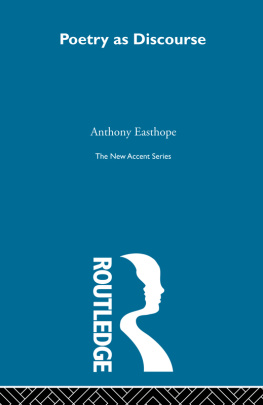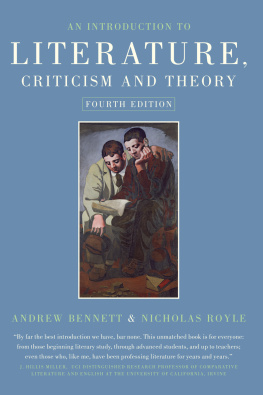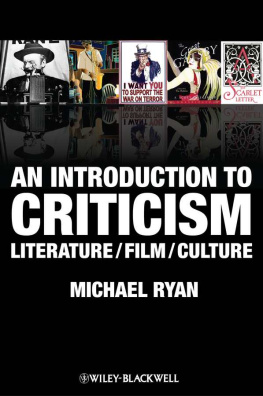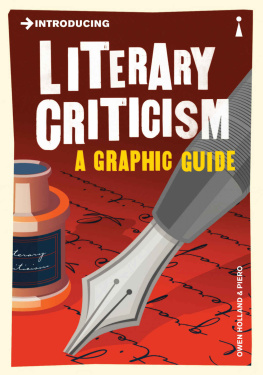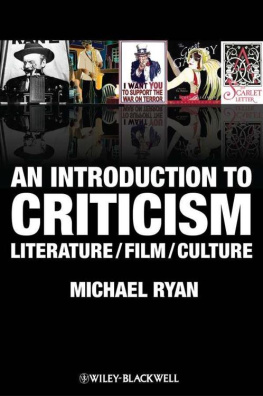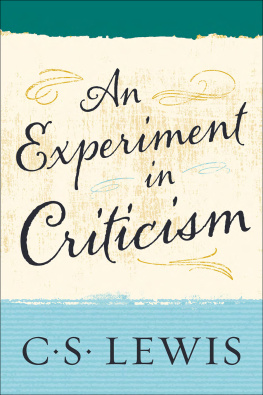Freund - Return of Reader
Here you can read online Freund - Return of Reader full text of the book (entire story) in english for free. Download pdf and epub, get meaning, cover and reviews about this ebook. publisher: Routledge, genre: Science. Description of the work, (preface) as well as reviews are available. Best literature library LitArk.com created for fans of good reading and offers a wide selection of genres:
Romance novel
Science fiction
Adventure
Detective
Science
History
Home and family
Prose
Art
Politics
Computer
Non-fiction
Religion
Business
Children
Humor
Choose a favorite category and find really read worthwhile books. Enjoy immersion in the world of imagination, feel the emotions of the characters or learn something new for yourself, make an fascinating discovery.
Return of Reader: summary, description and annotation
We offer to read an annotation, description, summary or preface (depends on what the author of the book "Return of Reader" wrote himself). If you haven't found the necessary information about the book — write in the comments, we will try to find it.
Freund: author's other books
Who wrote Return of Reader? Find out the surname, the name of the author of the book and a list of all author's works by series.
Return of Reader — read online for free the complete book (whole text) full work
Below is the text of the book, divided by pages. System saving the place of the last page read, allows you to conveniently read the book "Return of Reader" online for free, without having to search again every time where you left off. Put a bookmark, and you can go to the page where you finished reading at any time.
Font size:
Interval:
Bookmark:

The Return of the Reader
THE NEW ACCENT SERIES
General Editor: Terence Hawkes
Alternative Shakespeares 1, ed. John Drakakis
Alternative Shakespeares 2, ed. Terence Hawkes
Post-Colonial Shakespeares, ed. Ania Loomba and Martin Orkin
Re-Reading English, ed. Peter Widdowson
Rewriting English, Janet Batsleer, Tony Davies, R. ORourke, Chris Weedon
English and Englishness, B. Doyle
Linguistics and the Novel, Roger Fowler
Language and Style, E. L. Epstein
The Semiotics of Theatre and Drama, Keir Elam
Structuralism and Semiotics, Terence Hawkes
Superstructuralism, Richard Harland
Deconstruction ed. 2, Christopher Norris
Formalism and Marxism, Tony Bennett
Critical Practice, Catherine Belsey
Dialogism, Michael Holquist
Dialogue and Difference: English for the Nineties, ed. Peter Brooker/Peter Humm
Literature, Politics and Theory, ed. F. Barker, P. Hulme, M. Iversen, D. Loxley
Popular Fictions: Essays in Literature and History, ed. Peter Humm, Paul Stigant, Peter Widdowson
Criticism in Society, ed. Imre Salusinszky
Fantasy, Rosemary Jackson
Science Fiction: Its Criticism and Teaching, Patrick Parrinder
Sexual Fiction, Maurice Charney
Narrative Fiction: Contemporary Poetics, Shlomith Rimmon-Kenan
Metafiction: The Theory and Practice of Self-Conscious Fiction, Patricia Waugh
Telling Stories: A Theoretical Analysis of Narrative Fiction, Steven Cohan and Linda Shires
Poetry as Discourse, Anthony Easthope
The Politics of Postmodernism, Linda Hutcheon
Subculture, ed. 2, Dick Hebdige
Reading Television, John Fiske and John Hartley
Orality and Literacy, Walter J. Ong
Adult Comics, An Introduction, Roger Sabin
The Unusable Past, Russell J. Reising
The Empire Writes Back, Bill Ashcroft, Gareth Griffiths and Helen Tiffin
Translation Studies ed. 2, Susan Bassnett
Studying British Cultures, Susan Bassnett
Literature and Propaganda, A. P. Foulkes
Reception Theory, Robert C. Holub
Psychoanalytic Criticism, Elizabeth Wright
The Return of the Reader, Elizabeth Freund
Sexual/Textual Politics, Toril Moi
Making a Difference, ed. Gayle Green and Copplia Kahn
AVAILABLE AS A COMPLETE SET: ISBN 0-415-29116-X
Elizabeth
Freund
The Return of the Reader
Reader-response criticism

First published 1987 by Routledge
This edition first published 2003
by Routledge
2 Park Square, Milton Park, Abingdon, Oxon, OX14 4RN
Simultaneously published in the USA and Canada
by Routledge
270 Madison Ave, New York, NY 10016
Routledge is an imprint of the Taylor & Francis Group
Transferred to Digital Printing 2007
1987, 2003 Elizabeth Freund
All rights reserved. No part of this book may be reprinted or reproduced or utilised in any form or by any electronic, mechanical, or other means, now known or hereafter invented, including photocopying and recording, or in any information storage or retrieval system, without permission in writing from the publishers.
British Library Cataloguing in Publication Data
A catalogue record for this book is available from the British Library
Library of Congress Cataloging in Publication Data
A catalog record for this book has been requested
ISBN 0415291453 (hbk)
ISBN 0415300282 (set)
Publishers Note
The publisher has gone to great lengths to ensure the quality of this reprint but points out that some imperfections in the original may be apparent
Printed and bound by CPI Antony Rowe, Eastbourne
To my mother
and to the memory of my father
Contents
It is easy to see that we are living in a time of rapid and radical social change. It is much less easy to grasp the fact that such change will inevitably affect the nature of those disciplines that both reflect our society and help to shape it.
Yet this is nowhere more apparent than in the central field of what may, in general terms, be called literary studies. Here, among large numbers of students at all levels of education, the erosion of the assumptions and presuppositions that support the literary disciplines in their conventional form has proved fundamental. Modes and categories inherited from the past no longer seem to fit the reality experienced by a new generation.
New Accents is intended as a positive response to the initiative offered by such a situation. Each volume in the series will seek to encourage rather than resist the process of change; to stretch rather than reinforce the boundaries that currently define literature and its academic study.
Some important areas of interest immediately present themselves. In various parts of the world, new methods of analysis have been developed whose conclusions reveal the limitations of the Anglo-American outlook we inherit. New concepts of literary forms and modes have been proposed; new notions of the nature of literature itself and of how it communicates are current; new views of literatures role in relation to society flourish. New Accents will aim to expound and comment upon the most notable of these.
In the broad field of the study of human communication, more and more emphasis has been placed upon the nature and function of the new electronic media. New Accents will try to identify and discuss the challenge these offer to our traditional modes of critical response.
The same interest in communication suggests that the series should also concern itself with those wider anthropological and sociological areas of investigation which have begun to involve scrutiny of the nature of art itself and of its relation to our whole way of life. And this will ultimately require attention to be focused on some of those activities which in our society have hitherto been excluded from the prestigious realms of Culture. The disturbing realignment of values involved and the disconcerting nature of the pressures that work to bring it about both constitute areas that New Accents will seek to explore.
Finally, as its title suggests, one aspect of New Accents will be firmly located in contemporary approaches to language, and a continuing concern of the series will be to examine the extent to which relevant branches of linguistic studies can illuminate specific literary areas. The volumes with this particular interest will nevertheless presume no prior technical knowledge on the part of their readers, and will aim to rehearse the linguistics appropriate to the matter in hand, rather than to embark on general theoretical matters.
Each volume in the series will attempt an objective exposition of significant developments in its field up to the present as well as an account of its authors own views of the matter. Each will culminate in an informative bibliography as a guide to further study. And, while each will be primarily concerned with matters relevant to its own specific interests, we can hope that a kind of conversation will be heard to develop between them; one whose accents may perhaps suggest the distinctive discourse of the future.
TERENCE HAWKES
I should like to acknowledge the help I have received at various stages from many friends and colleagues. The valuable comments and conversation of Shlomith Rimmon-Kenan, Rael Meyerowitz, Josh Wilner, Michael Goldman and Wolfgang Iser have contributed to the shape of this book. The pervasive influence of Geoffrey Hartman over a number of years has been beyond anxiety.
Next pageFont size:
Interval:
Bookmark:
Similar books «Return of Reader»
Look at similar books to Return of Reader. We have selected literature similar in name and meaning in the hope of providing readers with more options to find new, interesting, not yet read works.
Discussion, reviews of the book Return of Reader and just readers' own opinions. Leave your comments, write what you think about the work, its meaning or the main characters. Specify what exactly you liked and what you didn't like, and why you think so.

